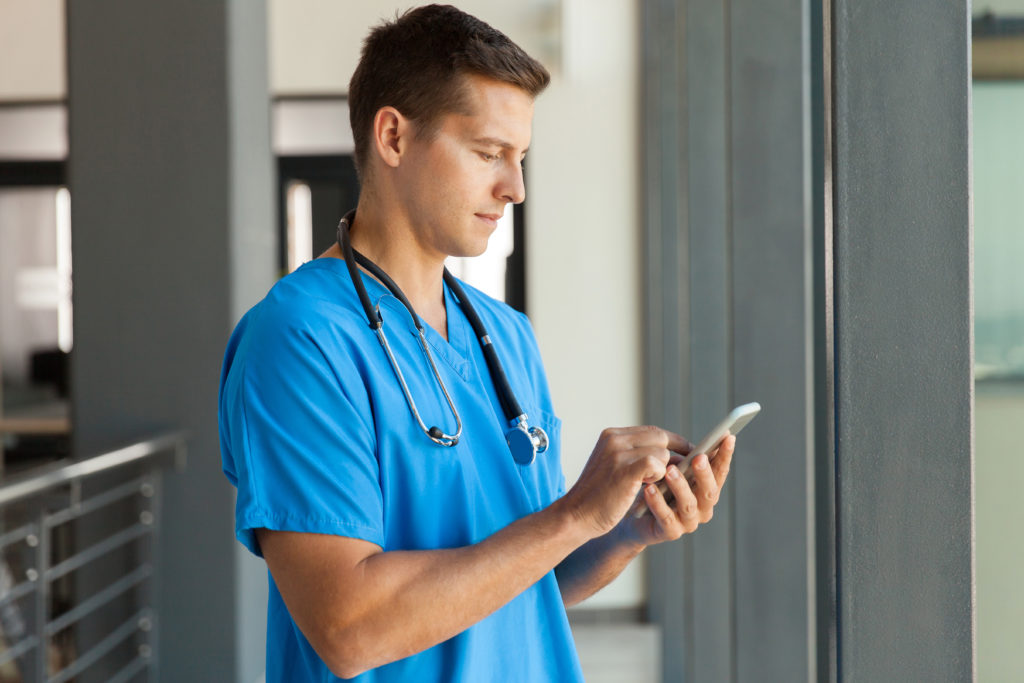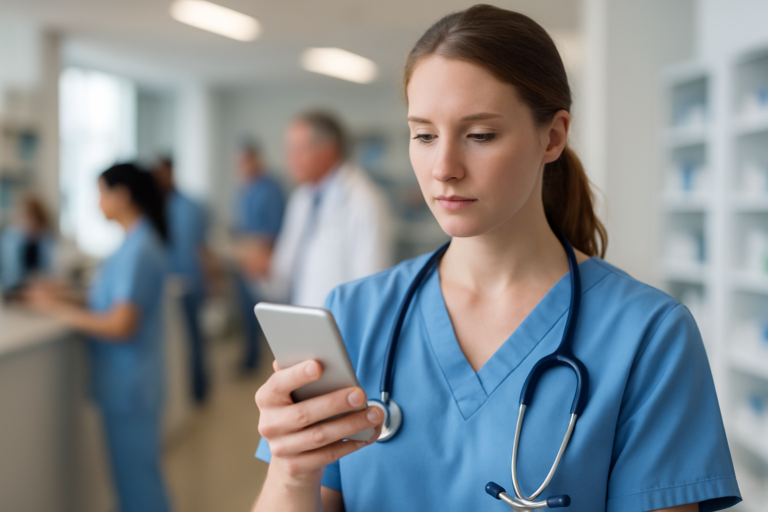Mobile healthcare and mobile therapy—using smartphones in healthcare and other mobile devices in the health care setting—allow us to walk the talk toward greater work/life balance, patient-centered care, and value-based reimbursement. Simpler, better mobile patient communications, empower us to improve efficiency.
Mobile healthcare and mobile therapy—using smartphones and other mobile devices in the health care setting—allow us to walk the talk…pun intended, toward greater work/life balance, patient-centered care, and value-based reimbursement. Simpler, better mobile patient communications, empower us to improve efficiency. However, we also need to ensure our mobile healthcare communication solutions protect patient information shared on mobile devices, meet HIPAA compliance and more. Mobile healthcare technologies need to handshake with other technologies, like electronic health records and other mobile devices. And apps for delivering patient communications must be safe and effective. It’s important to do the right thing to protect your patients, your practice, your reputation.
Mobile devices are becoming as prevalent in the health care setting as they are in the rest of our lives. The trend is tremendously freeing. Facetime, text messaging and mobile calls offer flexibility. More than 83 percent of physicians use mobile technology to provide patient care.1 Clinicians—including physicians, nurse practitioners, nurses, and physician assistants—use mobile technology to update patient records, search for clinical information, and connect to colleagues. Patients use mobile technology to track health indicators, communicate with their providers, and search for health information.
Office managers and practitioners must be thoughtful in how they integrate mobile health technology while addressing “chinks in the armor” and sensitive regulatory issues such as:
- Clinical decision support: Evaluating and selecting the best apps to support clinical decisions;
- Workflow efficiencies: Using simpler, better yet HIPAA compliant mobile-enabled devices, services, and software to optimize data retrieval and documentation, as well as health care transactions;
- Communication and coordination: Appropriately connecting and sharing secured information among providers to better coordinate care;
- Patient engagement: Supporting population health, improving compliance, and engaging patients in their care; and
- Security: Maintaining the security and privacy of health information in a mobile environment.
Here are a few more stats reported by HIMSS on the growing use of mobile devices…and it’s only increasing.
“Sixty-nine percent of providers have used a mobile device to view patient information and 36 percent used mobile technologies to collect data in the exam room.”
In another HIMSS study, more than three out of four clinicians reported professional usage of smartphones. In 2014, 41 percent of clinicians qualified as “digital omnivores,” defined as those who utilize a tablet, smartphone, and computer routinely in a professional capacity.
What are Your Goals for Mobilizing Your Practice?
To get your practice up to speed for HIPAA this year, experts say, conduct a thorough evaluation of your practice operations to make certain you remain in compliance for data security, privacy, and reporting of breaches.
More information about the updated HIPAA regulations is available at https://www.cms.gov/Regulations-and-Guidance/Administrative-Simplification/HIPAA-ACA/index.html
Next time, I’ll talk more about the essential capability to integrate your mobile technologies with other technologies like EHR. I’ll get ready to close this post with a great quote from Mark Twain as I think about mobility and safety, security and flexibility in today’s health care setting. “Do the right thing. It will gratify some people and astonish the rest.”
I’d enjoy a conversation with you about your mobile office operations and how we can simplify meeting regulatory requirements regarding patient communications. I can help you learn more about customizing our premier HIPAA-compliant phone system and patient communications platform to specifically meet the needs of your offices. We’ve been building phone system and conducting live after-hours answering services for more than 30 years. We can help simplify your patient communications, save you money on your phone system, increase efficiency and practice management and new this year…connect your mobile phones to other technologies with our API technology, grow your business with messaging and more.





